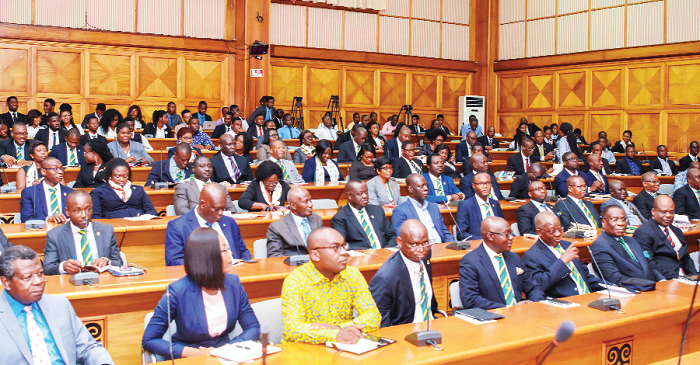Ghanaians can look forward to a reduction in interest on loans when the various measures aimed at formalising the economy are completed, the Vice-President, Dr Mahamudu Bawumia, has said.
He explained that Ghana had one of the highest mortgage-to-income ratios and high interest rates in the world because of the largely informal nature of her economy.
Dr Bawumia was speaking at the 21st National Banking Conference in Accra yesterday. It was organised by the Ghana Institute of Bankers on the theme: “Building a Robust and Sustainable Banking System in Ghana.”
Interest rates
The average interest rate of 29 per cent on loans in Ghana as of September, 2017 is among the highest in Africa, with banks citing the risk of default as a major factor.
In contrast, borrowers in Botswana pay about seven per cent while Mauritian banks charge an average of 8.5 per cent with South African banks charging an average of 10.25 per cent, according to figures from their central banks.
High risks
Dr Bawumia said Ghanaian banks were unable to lend at low rates because of the risks associated with lending to an unknown quantity.
That, he said, informed the government’s decision to introduce measures such as the National ID card and the Digital Property Addressing system to make it easier to identify and trace borrowers and thereby reduce the risk premium.

“As bankers, we have always realised that high interest rates make it difficult for customers to pay, and it makes the banking system very fragile.
“Banks face many problems. The risk that customers present: they come to you, you don't know what their history is; there is no unique ID for an individual customer,” he said.
“The credit reference system is not really robust so you don't know exactly what their history is, how many banks they’ve taken loans from and they haven’t paid, whether there's been a change of name in the middle; you are presented with an unknown quantity and sometimes somebody opens an account today and they want to borrow money that same afternoon,” he stated.
Dr Bawumia said the risk was quite high, adding, “if we cannot uniquely identify individuals in our economy and also uniquely identify where they live, it becomes a very chaotic environment to do banking and, therefore, the risk premium will continue to be high, and even though you are bringing down the deficits and bringing down the Treasury-bill rate, you are not going to see the impact on the lending rate in particular.”
Big role
The Vice-President urged banks to play a greater role in growing and strengthening Ghana’s economy, while giving the assurance that the government was committed to ensuring macro-economic stability.
“I challenge banks to be relevant to the economy by extending loans to the productive sectors, particularly the small and medium scale enterprises. As a government, we are committed to improving the economy through the pursuit of prudent financial management policies.
“The future of banking is bright but we have a lot to do together as key stakeholders in the industry. Let us pursue banking reforms and policies that will strengthen prudential and regulatory oversight to maintain a resilient banking sector.”
Source: Daily Graphic


Comments